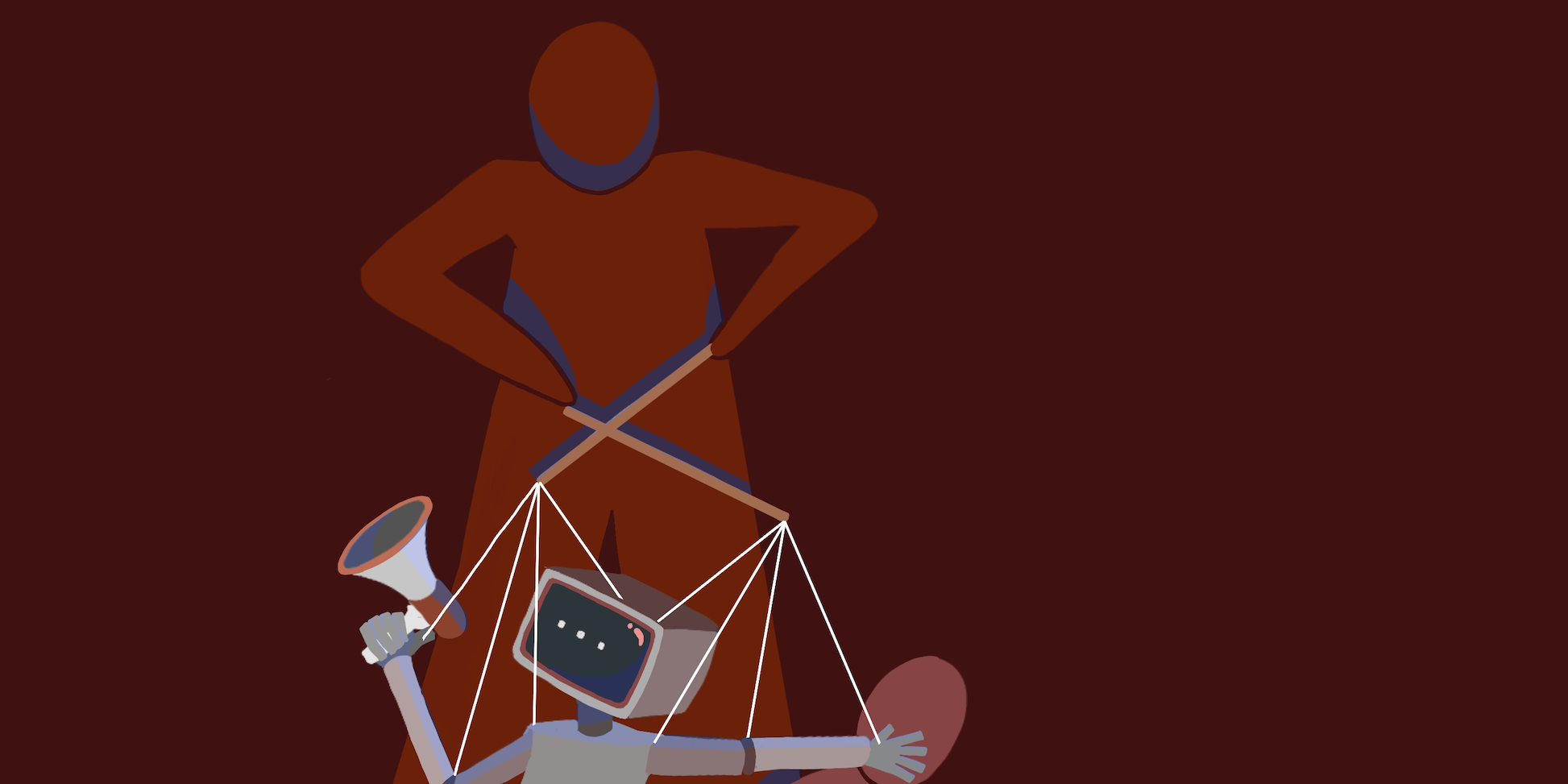Freedom of the Press: Lessons from Cecilia Sala’s Bold Journalism
By Allegra Baschiera, Illustrations by Azadeh Changrani-Rastogi
As the THIMUN 2025 conference begins, delegates and chairs will craft resolutions to solve various global issues. Still, the MUNITY team will heed the role of sharing the work of all participants in the conference. By sharing this information, students interested in international relations, citizens of The Hague, and MUN enthusiasts will be able to keep track of all the debates and topics that delegates engage in.
Now, imagine if none of this were possible. Imagine what type of information would reach fellow students if the MUNITY team were to be silenced, and would not be allowed to report the ongoing debates at the THIMUN conference.
Freedom of the press in fighting against misinformation and disinformation is a crucial and very prevailing topic in today’s modern world. When journalists are empowered to investigate and report freely, they are taken accountable to share truthful information, but their experience can also lead us to distinguish fake news from reality. However, when freedom of speech in the press is suppressed–either by governments, organizations, or individuals who aim to manipulate facts–political and social turmoil may arise. Italian journalist, Cecilia Sala, perfectly demonstrates the importance of freedom of the press through her recent experiences.
On the 27th of December, Cecilia Sala was arrested and detained in Tehran, in Evin (despite regular press admission), accused of the “violation of the Islamic Republic’s laws” whilst on a reporting trip. After 21 days of detention in inhumane conditions, Ms. Sala was finally released and able to detail the real reasons for which she was arrested. The journalist is a prominent figure in the Italian political setting, and is also famous for her Stories podcast, where she travels around the world to interview and share stories of civilians living in areas of crisis or political instability. Tehran’s government has not formalized the specific motivations for the arrest of Ms. Sala, but as described by the PR Newswire, “Sala’s ordeal was a brazen attack on press freedom and a reminder of the extraordinary risks journalists face to bring the truth to light”. Allegedly, one of the motivations for the arrest of Cecilia Sala was to use her as a bargaining tool to revoke the detention of an Iranian engineer, subject to an international arrest warrant, but Tehran denied the connection between the two cases.
During this conference, the Special Conference on Artificial Intelligence (SPC 2), explored misinformation and disinformation, and the role they play in the dangers of developing Artificial Intelligence. On one side, AI can increase accessibility to information as the degree of complexity can be altered, and it shows information in an unbiased way. However, as a delegate reflected “the fact that AI does not possess emotions and critical thinking skills, makes us more competent and reliable in some situations”. Additionally, the council discussed the responsibility of a single person or company to program an algorithm that many people will draw information from, ultimately deciding that a restriction of AI use has to be implemented to prevent spreading of misinformation and disinformation
In a world where we must constantly be aware of the reliability of our sources of information, the role of experienced journalists must be supported by guaranteeing freedom of press.








